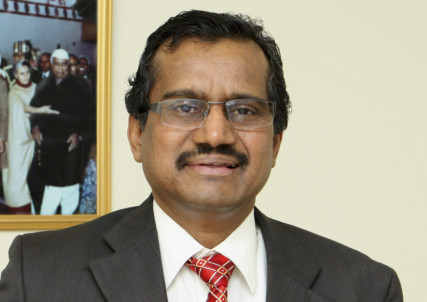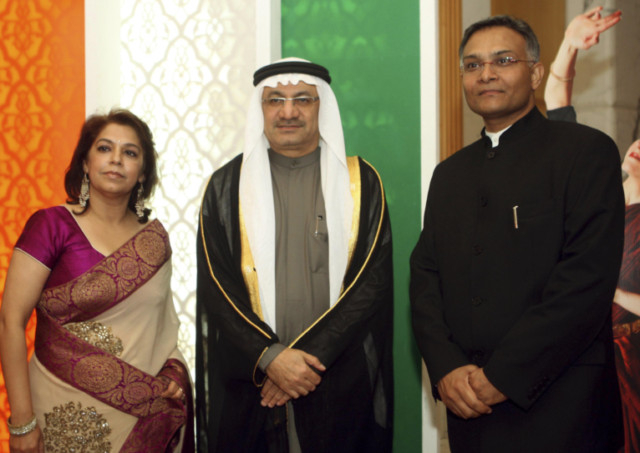
Seated under a 1975 photograph of former Indian Prime Minister Indira Gandhi welcoming then UAE President Shaikh Zayed Bin Sultan Al Nahyan, M.K. Lokesh, Ambassador of India to the UAE, looks forward to another historical milestone — Indian Prime Minister Dr Manmohan Singh’s visit to the UAE this year.
Timeline: The birth of a nation (.PDF 3MB)
“We are in touch with our government and they are considering it. There is already an invitation from the leadership here for our Prime Minister. We are trying for the latter part of this year,” says Lokesh, speaking to GN Focus.
Historical ties
The last time an Indian Prime Minister stepped on UAE soil was in 1981 when the late Indira Gandhi visited. His Highness Shaikh Mohammad Bin Rashid Al Maktoum, Vice-President and Prime Minister of the UAE and Ruler of Dubai, visited India in 2007.
“These visits give tremendous boost to relations in all spheres. They contribute to bring the two countries together at a political level. We need to continue to intensify the excellent links that exist between the two countries. These visits provide the base for other links,” Lokesh says.
India and the UAE are each other’s largest trading partners in terms of economic output. In 2011, the UAE’s import from India was estimated at $28.5 billion (about Dh104.6 billion) and exports at $36.2 billion (about Dh133 billion), according to official data by Indian Federal Customs Authority.
“The fact that we are the largest trading partners for each other definitely impacts our bilateral relations. Around the world, trade is now considered a major factor in governing relations between two countries. Economic relations are key. Trade binds our relations,” says the ambassador.
Just as important, he says, is investment. “The UAE is among the top ten foreign investors in India. The UAE is very important for us in energy security and is among the top five suppliers of crude oil for India. For the UAE, India is the second-largest market for crude oil, after Japan,” he says.
Backed by “intense and diverse” cultural interaction, Ambassador Lokesh says that the ties can only become stronger. “Obviously, much more is possible, given the resources. The Abu Dhabi Investment Authority (ADIA) has one of the largest sovereign funds in the world. India has to do a lot to make it easier to invest and create confidence. There is interest and we would like them to invest in infrastructure,” he says.
Encouraging investment
The past couple of years have seen a lot of activity in this field. “We have set up a high level task force to encourage investments. From the Indian side, the Minister of Commerce and Industry, Anand Sharma, is the co-chair. From the UAE, Shaikh Hamed Bin Zayed Al Nahyan, Managing Director, ADIA, is the co-chair.”
The task force has been meeting regularly with the UAE delegation visiting India first in 2010 and again in May this year. S.M. Krishna, Indian Minister of External Affairs, visited the UAE this April for a joint commission meeting. In addition to this, May saw the third Indo-Arab Partnership conference hosted by UAE’s ministry of foreign affairs, the League of Arab States, and Indian Ministry of External Affairs-India in cooperation with Abu Dhabi Chamber of Commerce and Industry, Federation of Indian Chamber of Commerce and Industry, General Union of Chambers of Commerce, Industry and Agriculture and Federation of Arab Businessmen.
Since this is the influence issue, we ask the ambassador about who inspires him: “Not any one person but a large number of people have influenced me,” says Lokesh. “From among the Indian leaders, it was Jawaharlal Nehru, the architect of our foreign policy. He ensured that democracy took deep root in India. He planned the economy and implemented it, making it what it is today. He built many educational institutions, which led to India becoming home to technically qualified manpower. He encouraged agriculture and made the country self reliant.”
The biggest influence, non-Indian: “Based on contribution, I can say Abraham Lincoln. He abolished slavery and it was a bold decision at the time. I really admire him,” says Lokesh.
The ambassador describes his tenure in the UAE as fruitful and insightful. “The leadership is very dedicated to the welfare of citizens,” says Lokesh. “They are visionary and far-sighted. Once the leadership decides to do something, it is done in a grand manner and no effort is spared. That is why both Abu Dhabi and Dubai are something of a brand name.
“The infrastructure could have only been built through foresight. Along with that the UAE is quite hospitable and tolerant towards expatriates. This is a recipe for development in any other country,” he says.






